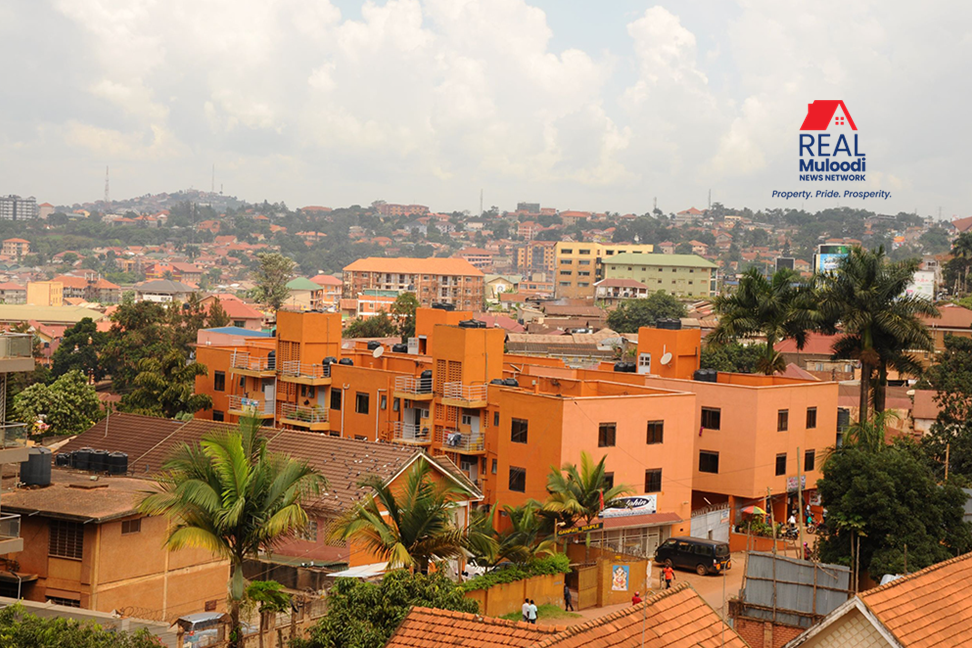UGANDA, Kampala | Real Muloodi News | By November 2023, statistics from the Office of the Prime Minister recorded 121,499 immigrants residing in Kampala City and Wakiso District. This influx of non-local tenants into various Kampala neighbourhoods has significantly impacted rental pricing patterns.
Areas once considered affordable have experienced notable rent increases, presenting challenges for residents. These dynamics highlight the intersection of urban development, economic opportunity, and affordability in Kampala.
Neighbourhoods like Kololo, Naguru, and Nakasero have historically attracted expatriates, diplomats, and international workers due to their proximity to diplomatic missions, business hubs, and high-end amenities. However, this trend has expanded to previously less costly areas, such as Ndeeba, Rubaga, and Makindye, leading to rent hikes across the city.
Property manager Julius Mbiine explains how the arrival of non-local tenants has reshaped rental dynamics.
“Non-local tenants tend to have higher budgets. Landlords see this as an opportunity to charge more, often pricing out Ugandans who have lived in these areas for years,” he said.
For example, in Naguru, a two-bedroom apartment that cost USh800,000 a few years ago now rents for over Shs1 million. This sharp increase has created an affordability gap, particularly for long-term residents.
Non-local tenants are drawn to specific Kampala neighbourhoods for reasons beyond proximity to workplaces. International schools, reliable infrastructure, and robust security systems make these areas appealing. High-end amenities such as shopping malls, gyms, and restaurants enhance their attractiveness.
“I chose Muyenga because it is safe, has good infrastructure, and is close to my workplace,” said Sarah Ayomide, a Nigerian NGO worker in Kampala. “I am willing to pay more for comfort and convenience.”
To meet the demands of such tenants, landlords frequently upgrade properties to international standards. Modern kitchens, backup power systems, and gated security are common features in these remodelled houses. However, these enhancements also contribute to higher rents.
For many local tenants, the rising rental prices are a significant concern. Families that have lived in Kampala neighbourhoods for decades are increasingly unable to afford the escalating costs.
“Non-local tenants come with their dollars and euros, which means they can afford these high rents,” said Muyenga resident Grace Nakitende. “But for us, whose incomes are in Uganda shillings, we are slowly being pushed out of our homes.”
Nakitende explained that her rent doubled from USh800,000 to USh1.5 million within two years after a nearby apartment complex became popular among expatriates.
Displacement has social implications, disrupting long-standing communities and fracturing social networks. Families are forced to relocate, sometimes far from their original neighbourhoods, affecting access to schools, workplaces, and social services.
Landlords play a significant role in the rising rental prices. Many prioritise non-local tenants who can pay higher rents, often sidelining local renters.
“I had to move from Munyonyo to Kyebando because my landlord increased the rent after renting out the main house to an embassy official,” said 34-year-old teacher John Kamya. “I could not compete with the kind of money they were offering.”
Some landlords argue that the cost of upgrading properties necessitates higher rents.
“Renovating properties to suit international standards is costly,” said landlord Paul Kyambadde, who owns apartments in Rubaga. “If I invest millions in modernising my property, I have to recover that money. Unfortunately, local tenants often cannot match those rates.”
Additionally, landlords allegedly prefer tenants who pay in foreign currency, shielding themselves from fluctuations in the Ugandan shilling. This practice further disadvantages local tenants, whose incomes are typically in shillings.
City authorities and housing advocates have recognised the need for interventions to address the imbalance. Rent control is one proposed solution to limit how much landlords can charge. However, this measure has faced resistance from property owners, who argue it could discourage investment in real estate.
Another potential solution is the development of affordable housing projects targeting middle-income earners. By increasing the availability of such housing, pressure on high-end neighbourhoods could be alleviated.
“Developers should consider balancing their portfolios,” said real estate consultant Agnes Namutebi. “While it is okay to cater to the high-end market, there should also be investments in affordable housing.”
Beyond the economic statistics, the impact on local tenants has a human cost. Families face uprooting, children are transferred to new schools, and social ties are disrupted.
“I understand why landlords want to earn more, but what happens to us?” asked Kamya. “Where will we live if this continues?”
For many residents, the loss is not only financial but also deeply personal, as they leave behind homes and communities they have known for years.
As Kampala continues to grow, the housing market must strike a balance between accommodating international tenants and ensuring affordability for locals. Without proper regulation and investment in diverse housing options, the gap between foreign and local renters is likely to widen.
“Policies that promote diverse housing options, regulate rent increases, and incentivize affordable housing developments could help mitigate the issue,” Mbiine noted.
READ MORE LIKE THIS:



